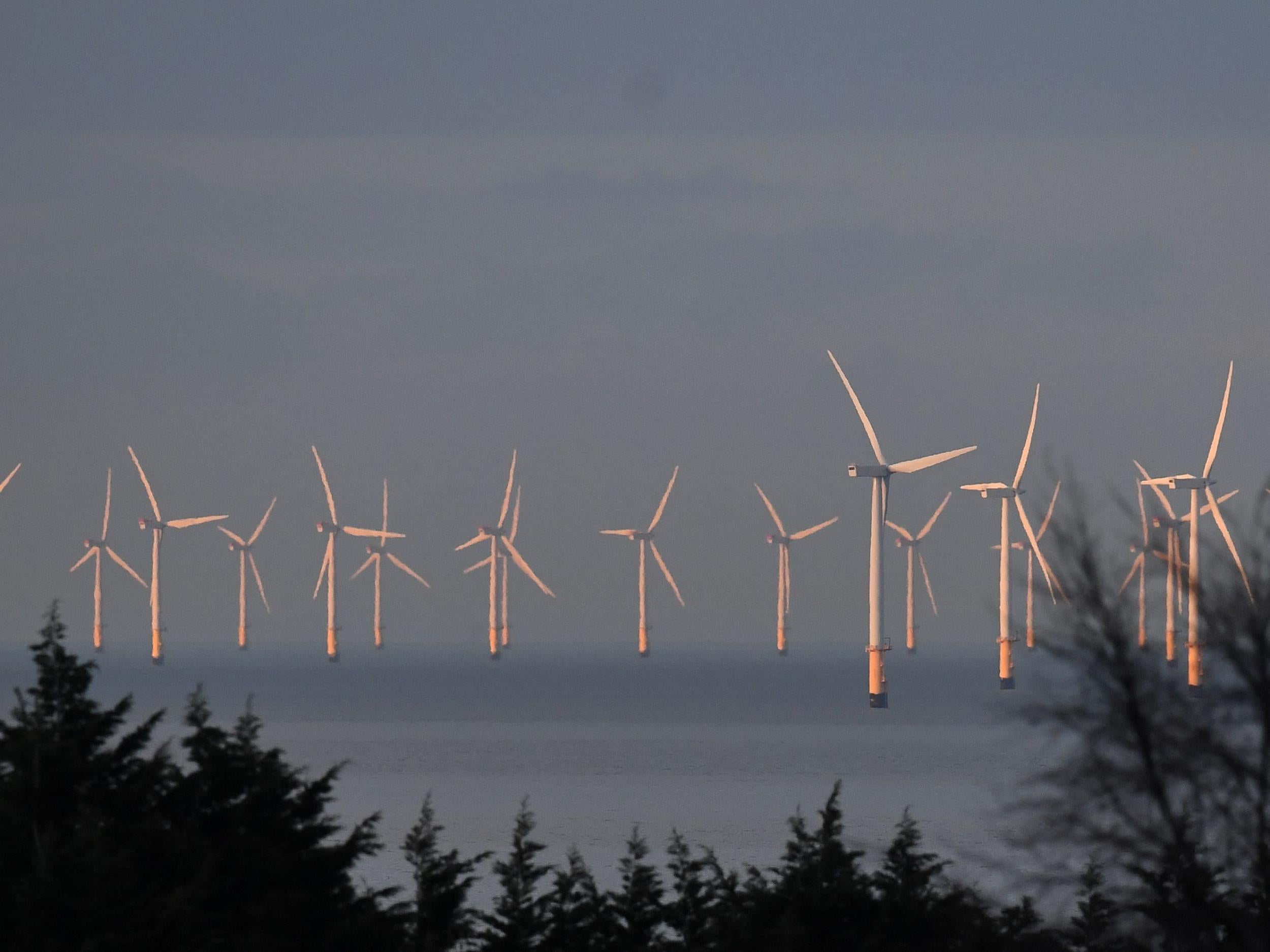Government must seize golden green energy opportunity
National Infrastructure Commission says energy from renewable sources could supply 50 of the UK's power needs by 2030 at no extra cost to consumers

Your support helps us to tell the story
From reproductive rights to climate change to Big Tech, The Independent is on the ground when the story is developing. Whether it's investigating the financials of Elon Musk's pro-Trump PAC or producing our latest documentary, 'The A Word', which shines a light on the American women fighting for reproductive rights, we know how important it is to parse out the facts from the messaging.
At such a critical moment in US history, we need reporters on the ground. Your donation allows us to keep sending journalists to speak to both sides of the story.
The Independent is trusted by Americans across the entire political spectrum. And unlike many other quality news outlets, we choose not to lock Americans out of our reporting and analysis with paywalls. We believe quality journalism should be available to everyone, paid for by those who can afford it.
Your support makes all the difference.Renewable energy powering half of Britain? Give us a break. They’re more likely to find a way to turn radiation into magic moonbeams. Talking of which, let’s build some more nuclear power plants. That’s what we need!
Believe it or not, I still sometimes hear variations upon that theme, despite an increasing weight of evidence showing it to be so much hot air.
But you don’t need to take my word for it. It’s basically the conclusion of a report penned by the National Infrastructure Commission, the body that was set up by the Government to provide it with independent, impartial and evidence based advice.
The NIC has just put out a report that says ministers have a “golden opportunity” to switch to switch Britain to green energy. Sorry, did I say green energy there? I meant to say “low cost energy”.
Because that’s the report’s key point. Not only does it say that energy from renewable sources; wind, solar, biomass etc, should be capable of generating at leat half Britain’s power by 2030, it also says it can do so without adding to consumers’ bills.
If UK makes the switch towards low-carbon and renewable sources for both power and heating, combined with a move towards electric vehicles, the consumer of 2050 “would pay the same in real terms for their energy as today”.
The scepticism towards “green” power that persists in some quarters possibly derives from the fact that, as the NIC states, “ten years ago, it seemed almost impossible for the UK to move towards being powered mainly by renewable energy sources such as solar and wind power in an affordable and secure way”.
With the need to lower carbon emissions increasingly pressing, nuclear was thus seen as the answer, and even by some environmentalists.
However, a quiet revolution has taken place and so quickly has the technology advanced that in the space of just five years the amount of energy derived from renewable sources has surged to 30 per cent from less than 12.
This calls into question the Government’s commitment to a new generation of nuclear power plants.
The development of Hinkley Point C in Somerset narrowly survived a bout of dithering from Theresa May shortly after she walked into number 10. Since then, however, other overseas operators have come in alongside its developers with plans of their own for future developments. They’ve found it easy to get a hearing, despite the controversy created by Hinkely’s development, and the high guaranteed price for the power it produces that will serve as a drain on the pockets of the public for years to come.
With the economics of nuclear looking increasingly shaky, the report urges the government to back no more than one new plant.
It should heed that. Ministers have for too long worshipped at the altar of nuclear, which boasts a vociferous and well funded lobby.
But the report clearly shows that their faith is misplaced. It is to be hoped that its evidence can blow or shine, or biomass it away.
Join our commenting forum
Join thought-provoking conversations, follow other Independent readers and see their replies
Comments